We speak to our CEO, Sylvain Thieullent, on his reflections from 2020 and his thoughts for the year ahead.
It’s been a turbulent year for the capital markets. How do you think trading infrastructure has held up throughout the crisis?
Since last March’s madness, the markets have corrected themselves. In fact, most liquidity providers and market makers were active during periods of intense volatility this year. Often these firms are criticised for disappearing in times of market stress. Given the high volumes we’ve seen, that hasn’t happened. Spreads did widen slightly but liquidity was available for investors to get in or out of their positions over spouts of volatility.
Overall, trading infrastructure has handled a demanding year remarkably well. There have been a few outages spread across the year, but the majority of systems appear to be robust. Even old technology like circuit breakers came in handy. That said, it has been a timely reminder to be prepared for the unexpected.
In what ways do you think firms adapted their trading habits in response to the crisis?
When March’s volatility peaked, there was understandably a reluctance to make large sized trades while prices were swinging. As a result, trading flocked to national exchanges and MTFs as opposed to dark and block trading venues.
Volatility also meant that clients placed an even greater emphasis on efficiently managing their trade flows. To stay competitive, agency traders must effectively balance managing most of their orders through algos, while maintaining the ability for manual attention when necessary.
What do you think are the most valuable learnings the trading community should take from 2020?
The search for high quality liquidity is likely to intensify this year, so it has never been more important for firms to gain a true understanding of their algos, which most investment banks are now reviewing. This is not only to understand the best ones, but also to discard the ones they do not fully understand.
Over the next year, firms must get to grips on navigating the increasingly complex nature of exchange traded derivatives. Trading is increasingly a game of automation, underpinned by quantitative analytics, predictive models, and innovative algorithms. Covid-19 provided a valuable lesson; there were drastic changes in asset valuation and the data algos that were built on these swiftly became outdated. It shows the value of being agile in updating the models that inform these trading algorithms, particularly for more complex instruments.
This will be more important as climate change becomes a reality. Events caused by a direct or indirect consequence of climate change could have an even more profound impact on some future valuations. The market is very focused on the pandemic for now and has clearly not fully factored in climate change yet.
What are Horizon’s biggest achievements from 2020?
Despite the challenges this year has brought, we achieved the highest growth in the company’s history, with 25% increase in sales compared to 2019. We’ve grown our client base, expanded our principal platform to agency trading, made several strategic hires and have won several prestigious industry awards. I’m particularly pleased with our regional expansion. Our foothold in Asia continues to strengthen and we have made strong inroads into other emerging markets this year, particularly in the Middle East and North Africa (MENA) region.
More than anything though, I’m very proud of the team. It’s not been an easy year for anyone, but the resilience we have shown puts us in a fantastic position for growth moving into 2021.
What underpins this success?
As always, the key is to keep innovating. We put lots of emphasis on R&D and are constantly striving to find out what our clients need to develop that into software that really optimizes their trading. We kicked off the year well by announcing a significant upgrade to our EOMS product in January. This supports brokers and flow trading desks and provides an enhanced real-time pricing platform for exchanges. Lots of our clients have onboarded this new platform and fed back positively.
An important part of the innovating process is having a dialogue with clients to find out how else you might be able to support them. As an example, we have been onboarding lots of clients onto our managed services platform. Our customers expressed that security was important for them, so we immediately began a security audit. We already had extremely strong security practices but having a SOC 2 certification proves it.
The last year has forced change in many respects, but what are the main trends you expect to be important in the year ahead?
We expect a big year for commodities. Analysts are predicting a bull market and commodities trading is undergoing an electronic transformation and outdated technology is being phased out. With trading circles shut, the commodities trading infrastructure requires a massive technology overhaul to ensure a smooth end-to-end trading experience. We are working with several exchanges on upgrading their technology and anticipate this will be an ongoing area of transformation.
Investment banks have changed their tune on cryptocurrencies, and we expect that to be a prominent theme over the year. The crypto markets are maturing and begin to resemble traditional markets with some exchanges now offering FIX connectivity, allowing for easy integration with the big players. However, there’s a long way to go to make trading easier and more reliable. The market still lacks standardised market structure and needs to address flaws in execution and pricing methodologies.
The nature of work has also fundamentally changed, and probably for good. We all need to adapt to remote working, which has raised numerous questions about trading processes. For example, how can a trader create, amend, or cancel orders if working remotely? How can firms keep close tabs on execution standards? Clarity will be needed in some areas this year.
How has Brexit affected trading at the start of this year?
With no equivalence agreement in place, equity markets are moving into the EU and are fragmenting share trading. It seems likely that it will become more expensive to trade UK listed and European stocks. It’s unclear how much more expensive equity trading will become. Costs could rise to the point where it’s no longer profitable to trade certain stocks altogether, which will have significant implications for the liquidity of EU and UK stock markets. The EU and UK must be pragmatic and establish an open framework for EU firms to easily operate in the City.
What are your biggest goals for the year ahead?
In a nutshell, we want to be the global leader in trading technology for investment banks, brokers and exchanges. This year, onboarding clients onto our managed services is an ongoing strategic focus. Additionally, we see a huge amount of opportunity for us in emerging markets and Asia will be a region we prioritise throughout 2021.
Because of our expansion, we are also on a big recruitment drive. The number of new staff at Horizon almost doubled from 2019 to 2020 and we expect this to continue. I firmly believe our growth can be attributed to our consistent investment in people and innovation. The company created functional set-ups to work from home while working safely and has overseen the training for 60% of our staff, providing encouragement for Horizon’s humble ESG initiatives. That’s something I’m determined we maintain this year.


